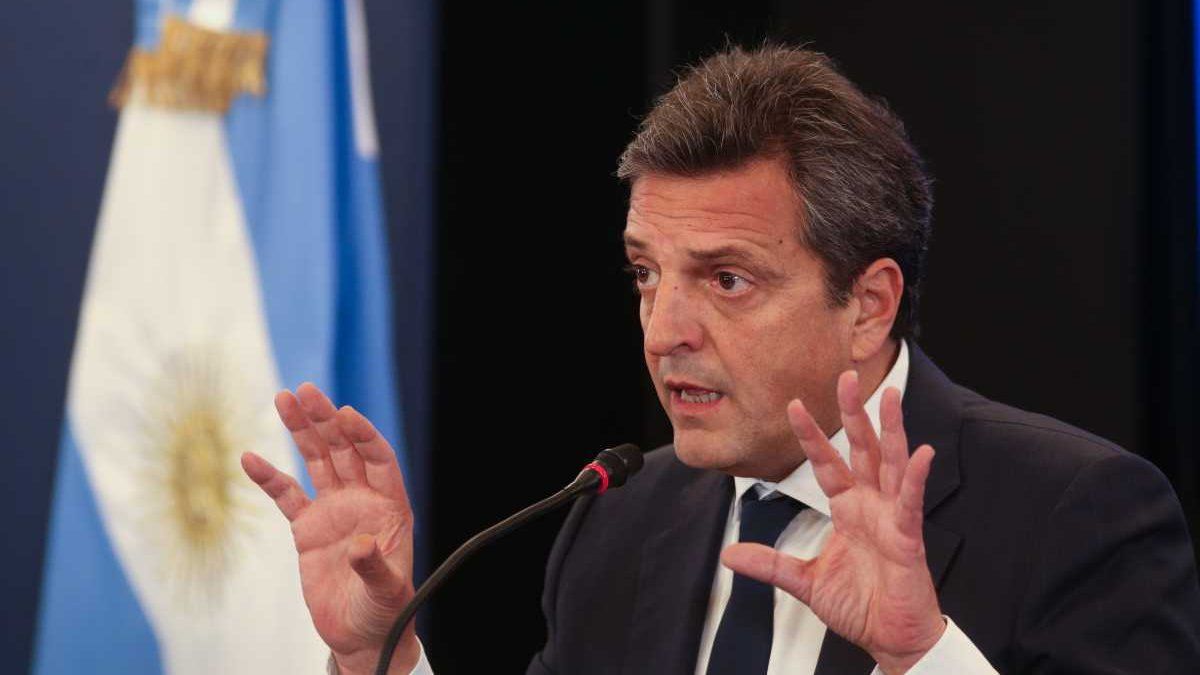In dialogue with Futurock, Massa said that when he assumed the leadership of the Palacio de Hacienda “the objective was to lower inflation one point every 60 or 65 days” and that “the objective is to reach the month of April with inflation that is 3 percent in front of”.
“I am sure that we are going to lower inflation, because when you propose to accumulate reserves, you order the accounts, when in parallel you make good use of economic instruments to achieve better offers from the productive sectors to the consumer, when you align the rate, You will achieve the goal.”
Bookings
After the extension of the swap with China, the Minister of Economy remarked what implications it will have on the Central Bank’s reserves: “Argentina has a sqap with China for US$18,000 million. What the swaps represent is strengthening or support in the reserves What was agreed is that US$5,000 of those US$18,000 be freely available. They function as daily operating instruments of the Central Bank to work in the MULC. The application of free availability allows us to have twice the capacity of reserves than we had”.
“The search for fiscal balance, the accumulation of reserves, exchange competitiveness are not an imposition of the Fund, they are a conviction of the vast majority of the FDT because the best results were achieved when we had trade, fiscal and reserve surpluses.”
IMF
Massa spoke about the talks with the Monetary Fund within the framework of the G20, and the claim for the costs of the war between Russia and Ukraine. “The impact of the war in the northern hemisphere began to be considered. The south has already paid for the war, the price of fertilizers and grains have been reflected in the accounts of the countries since last year. In Argentina they represented between 3,600 and 5,200 million dollars,” said the minister.
Massa stated that it should be discussed who absorbs the impact of the war. “We will have to discuss with the Fund what it means to absorb that responsibility. My intention is for the IMF to assume its responsibility as lender of last resort for the development of countries within the framework of a program,” he launched.
stabilization plan
Regarding the possibility of implementing a stabilization plan, he stated: “more important than making shocks that hurt society, is to follow a path that consolidates the objectives that you set for yourself. Having a tax order does not have to be a one-month shock thing, but something that is part of your conduct as an administrator. When you had shocks, they end as that government ended – in relation to 2001-”.
“The shocks work in powerpoints but when it comes to seeing reality, the programs need people to be inside, they generate damage that is sometimes irreparable.”
Dollar
The minister completely ruled out the possibility of implementing a sudden devaluation: “You have to tell people that making our currency lose value is pushing more people into poverty in Argentina, it is destroying a moment where installed capacity is working at a high level, with a high production volume, which reduces export competitiveness” and asserted: “you have to count the pros and cons of each thing”.
soybean dollar
In another order of the interview, he avoided providing definitions: “It seems that it would have been centuries ago, but it was less than sixty days ago that the export promotion decision that allowed us to strengthen reserves for the BCRA came to an end. We work every day with the productive sectors looking at the best instruments to increase the agro-export volume, not only in the agro-industrial sector but in the five or six most important sectors that are the knowledge economy, mining”. “If what we want is to understand why these types of decisions are made and why, make an evaluation that is handled week by week in the ministry”
Bonus for workers
For Massa, the momentum of parity is going to achieve a “recovery of income” and stressed that “it is the commitment we made with the FDT.”
“There was a recovery of income for public sector workers and there is a strengthening and a decision that is not conditioned by the limits of the agreement with the IMF, because we are putting a bonus for state workers and financed centrally from the Treasury.”
Meanwhile, regarding workers in the private sector, monotributistas, independent and belonging to the informal economy sector, he clarified that “many of these sectors have lost income because they are victims of inflation: our biggest enemy is inflation.”
To close, he avoided giving indications about a possible bonus to the workers, “I neither rule it out nor affirm it.”
Source: Ambito
David William is a talented author who has made a name for himself in the world of writing. He is a professional author who writes on a wide range of topics, from general interest to opinion news. David is currently working as a writer at 24 hours worlds where he brings his unique perspective and in-depth research to his articles, making them both informative and engaging.




